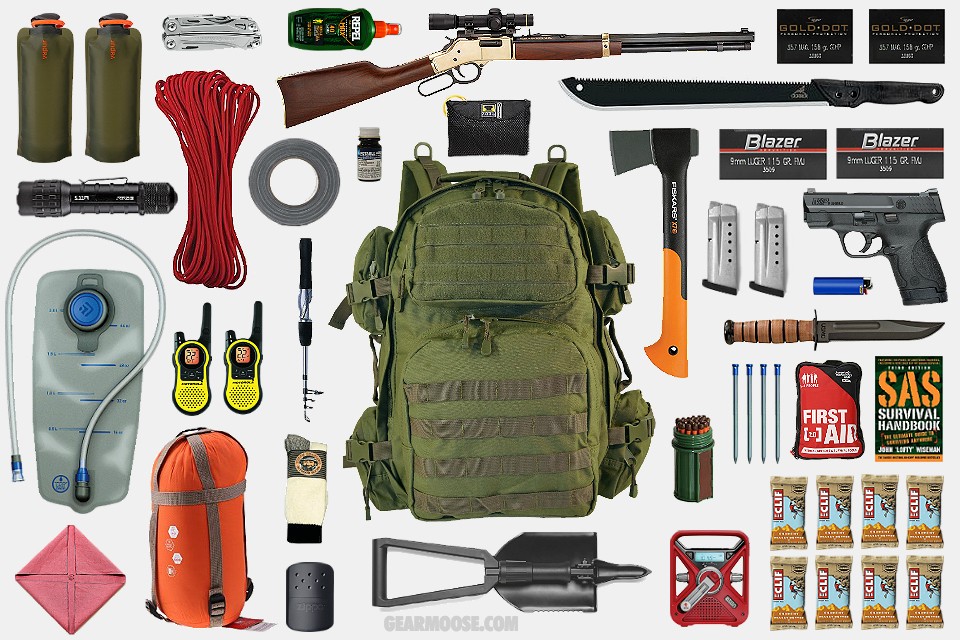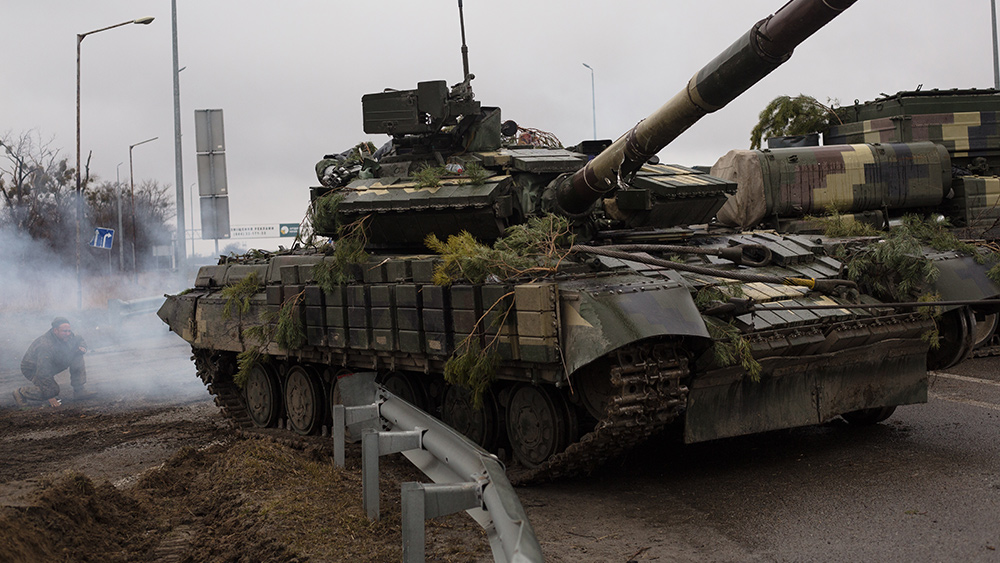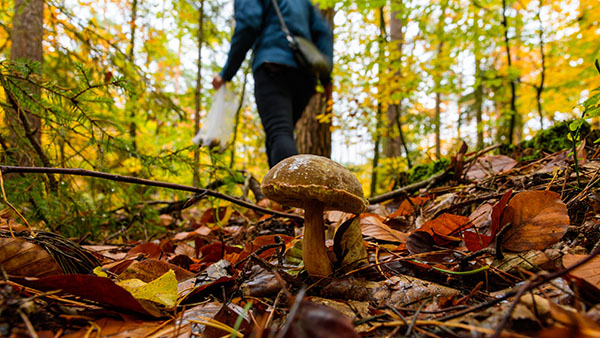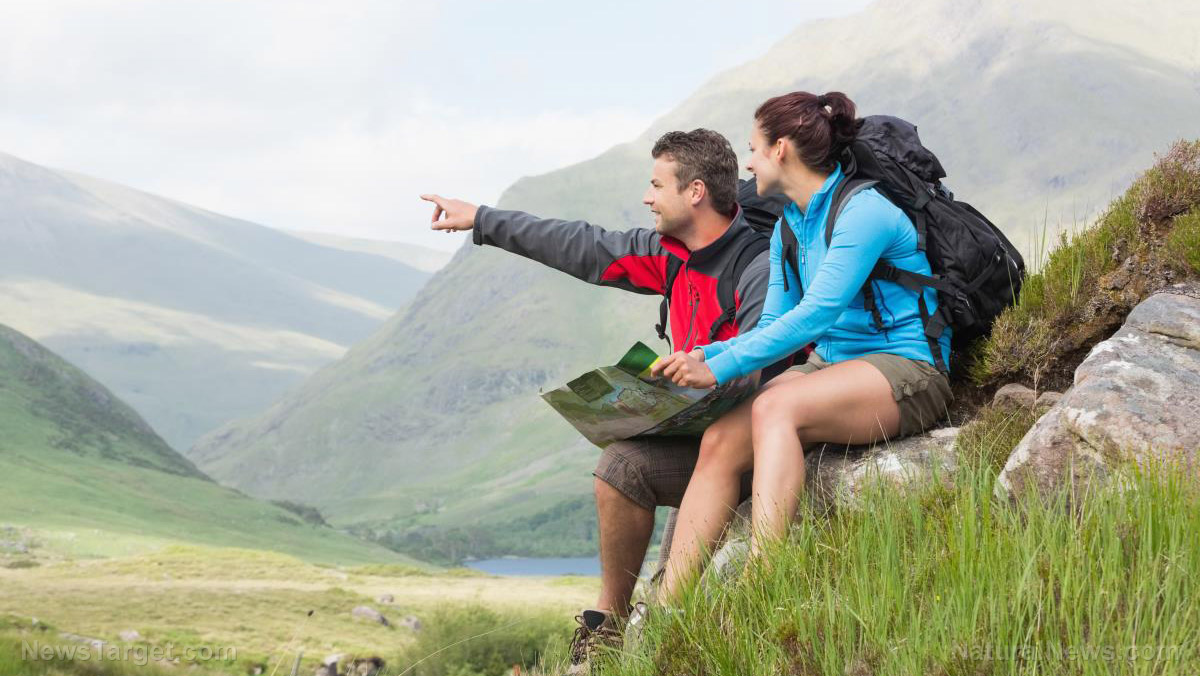
A good bug-out bag (BOB) should contain essential items, such as food, water and a first aid kit, that can help you survive when SHTF. To help you plan what to put in your BOB, this article will list some gears and supplies you should also prioritize and briefly explain why you need them.
Consider the weight of your BOB
If you're going to travel long distances, it's best to carry less weight. This means you should plan the content of your BOB carefully and only include items that are truly indispensable.
When packing your BOB, get-out-of-dodge (GOOD) bag or survival backpack, the ideal weight you should target is 10 percent of your body weight. The maximum you should attempt to carry is 20 percent.
If you have to carry everything on your back, make sure you are prepared to do so. Pick a sturdy bag that would best suit your needs and make sure you it has enough room for everything you need, not want.
Clothes
When bugging out, you need to have at least two sets of outfits: the one you are wearing and a clean set in your backpack. Think about what kind of outfit is appropriate for the season. Choose clothes that will allow you to travel comfortably during hot or cold weather.
Shoes
Buy high-quality footwear that won't get worn out easily. A good pair of shoes for bugging out should be able to protect your feet and keep them dry while allowing you to travel long distances comfortably. Make sure that they offer sufficient support for your feet and are easy to pack.
Don’t forget to bring extra socks to keep your feet warm and provide a certain amount of protection from blistering.
Head covering
A hat or cap that will sit firmly on your head and a bandana -- an amazing, lightweight survival tool with hundreds of uses -- are important items to have when bugging out.
Eyewear
A good pair of sunglasses can protect your eyes from harmful ultraviolet (UV) rays. This is important because prolonged or direct exposure to the sun's UV rays can damage the cells in your eyes and lead to long-term issues, such as cataracts, macular degeneration, photokeratitis, blurred vision and snow blindness -- a painful eye condition caused by UV rays being reflected off ice and snow in winter.
Hygiene items
Don’t forget to pack personal hygiene items, such as:
- Lip balm – Besides helping heal chapped lips, lip balm has many other uses, such as getting a fire going.
- Dental travel kit – You will need one to maintain good oral hygiene.
- Deodorant – A simple DIY deodorant needs only three ingredients: coconut oil, baking soda and your favorite essential oil. (Related: Why natural alternatives are better than conventional underarm cosmetics.)
- Hand sanitizer – Consider bringing a hand sanitizer that does not contain harmful ingredients like triclosan, which contributes to the rise of antibiotic-resistant bacteria. (Related: How to make a DIY hand sanitizer using essential oils.)
- Mirror – It's important to have a small mirror on hand so you can shave or see injuries on your face. You can also use it as a signaling device.
- Soap and shampoo – These are basic personal hygiene items that you can use to clean yourself.
- Sunblock – Sunburn comes with a number of health risks, so in summer this will be essential.
- Toilet paper tablets – Just add a little water to these tablets and they expand into wipes. If you can't get your hands on these, just a flattened roll of toilet paper will do, although tablets take much less space.
- Towel – Be sure to get a microfiber towel as they are incredibly absorbent and fast-drying.
- Wipes – These are a must so you can keep yourself clean when there's no water available for showers.
There are many other hygiene products not included in this list. For your comfort and ease, consider packing only the ones that you really need. (Related: How to make items for personal hygiene in a survival scenario.)
First aid kit
Injuries occur when you least expect it, so having a first-aid kit in your BOB is a must.
You can buy a good one or build one yourself. A good first-aid kit should come with all the basic medical items, such as an antiseptic ointment, bandages, gauze pads, medical tape, antibacterial wipes and over-the-counter medicines for common ailments.
Water filter or water purifier
Water is crucial for your survival, but it's heavy and inconvenient to carry large quantities when bugging out. That's why you need a reliable water filter in your BOB. Having one will allow you to gather water and filter it to make it drinkable.
You should also bring water purification tablets to make sure the water you collected is safe to drink. Although these tablets can't get rid of harmful chemicals like pesticides, they can help kill potentially harmful pathogens in water.
There are only a handful of brands and types to choose from when it comes to tablet-form water purifiers, so look for value (cost vs. benefit), effectiveness, speed, taste and versatility. Individually packaged tablets are amazingly convenient for BOBs and everyday carry kits.
Other useful small items to pack in your BOB include:
- Firestarter
- Whistle
- Compass
- Cutting tool
- Duct tape
- Paracord
Visit Preparedness.news for more tips on how to pack a bug-out bag.
Watch the following video to learn more items for your survival kit and bug-out bag.
This video is from the Daily Videos channel on Brighteon.com.
More related stories:
Prepping and air travel: Items for a TSA-approved BOB.
These important items deserve a place in every bug-out bag.
What's in YOUR bug-out bag: 10 must-have multipurpose survival tools.
Sources include:
Please contact us for more information.




















